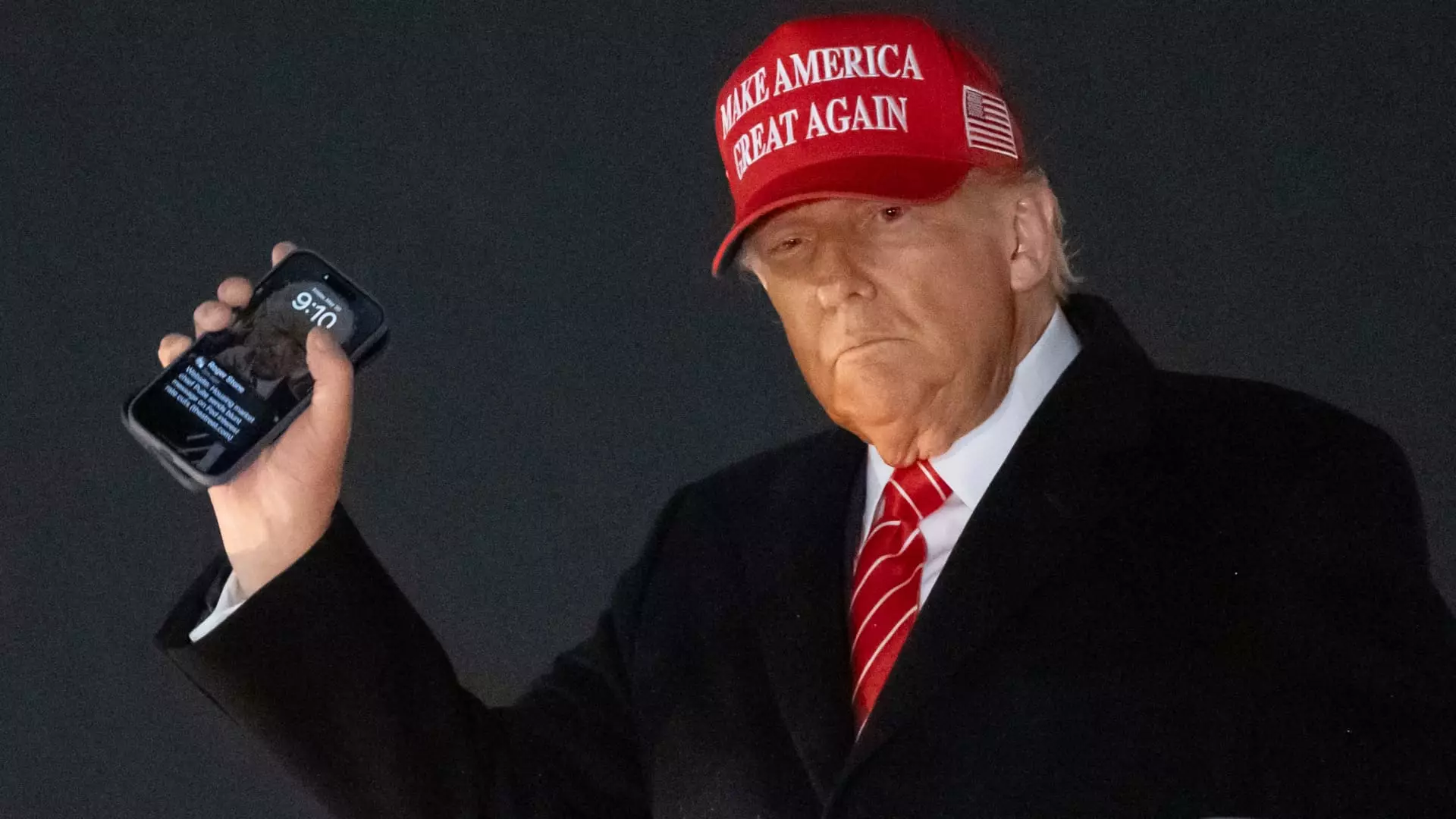In a move that can only be described as a blatant attempt to monetize political allegiance, The Trump Organization has launched Trump Mobile. The mobile phone service, paired with an ostentatiously designed smartphone dubbed the T1, promises unlimited talk, text, and data for $47.45 a month. The venture is not just another business endeavor; it is an embodiment of a political strategy that capitalizes on loyalty to the Trump brand. By branding their services with elements deeply intertwined with American nationalism—think of the gold-colored case etched with the American flag—this service slyly plays to the sentiments of those still enthralled by the former president’s rhetoric.
However, the service appears to lack substantial innovation or competitive pricing. For a market already saturated with established providers, the $47.45 monthly fee is outlandish when compared to competitors like Visible or Mint Mobile, which offer strikingly similar services at significantly lower rates. This begs the question: Are Trump supporters willing to pay a premium for what amounts to little more than a glorified gimmick?
An Erosion of Ethical Standards
At the crux of this launch lies a troubling ethical landscape. Trump Mobile is the latest addition to a series of licensing agreements not only designed to bolster profits but also to obscure the ethical implications of monetizing a political figure’s brand. The website explicitly states that the products and services are not developed or manufactured by The Trump Organization, but rather exist as licensing agreements wherein the Trump brand reaps profits while shirking accountability. It raises a fundamental issue: should a former president profit off his political stature, leveraging public loyalty with financial incentive?
This is a precarious furthering of a trend wherein politicians blur the lines between public service and personal profit. The alarming fact that Trump has generated over $8 million from such ventures in just 2024 speaks volumes about the priorities in American politics today. In effect, we are witnessing the commodification of political identity, crafting a scenario where voter allegiance is ultimately linked to consumerism.
A Thin Veneer of Value
When one delves into the specifications of the T1 smartphone, it becomes apparent that while it boasts impressive numbers—12 gigabytes of RAM, a 6.8-inch AMOLED screen, and a dual-camera system—these features are not groundbreaking. The Android 15 operating system is expected but not particularly exciting in the rapidly evolving tech landscape. For those willing to dip into their pockets for a phone, the actual value for money falls short of what established brands provide at competitive rates.
Moreover, the arrogant claim that Trump Mobile offers “the same coverage as the three nationwide phone service carriers” lacks transparency. The company has conveniently avoided disclosing detailed information about its coverage provider, tainting the bold claim with a sense of skepticism. Users might find themselves dealing with subpar service in comparison to their existing providers, all while buying into a branding scheme that prioritizes the Trump name over actual customer satisfaction.
A Marketing Ploy Disguised as Patriotism
At its core, Trump Mobile is a marketing ploy, cloaked in the guise of patriotism. The campaign—embellished with a nod to Trump’s slogan “Make America Great Again”—seeks to further entrench division by promoting a brand that stands more for ideological fidelity than quality. But why is there such a blatant conflation of politics and commerce? This merging of the two serves as a rallying point for the former president’s loyalists, allowing the Trump brand to thrive amid an increasingly fragmented political landscape.
The potential dangers of such branding cannot be overstated. By placing product loyalty on the same pedestal as political affiliation, we flirt with the risk of undermining genuine civic engagement and allowing the erosion of democratic discourse. Selling a phone becomes an allegory for selling allegiance, further blurring the boundaries between what it means to be a consumer and what it means to be a citizen. This trend demands keen scrutiny, especially in an age where political identity is already perilously intertwined with social capital.
Trump Mobile, therefore, is not just another mobile service; it is heralding a new, unsettling paradigm that perceives political loyalty as a product to be consumed. Although it remains to be seen how well it will fare in a fiercely competitive market, the implications extend far beyond financial success or failure. In the grander scheme, we must ask ourselves—what does it mean for democracy when a business exploits political identity for profit?

